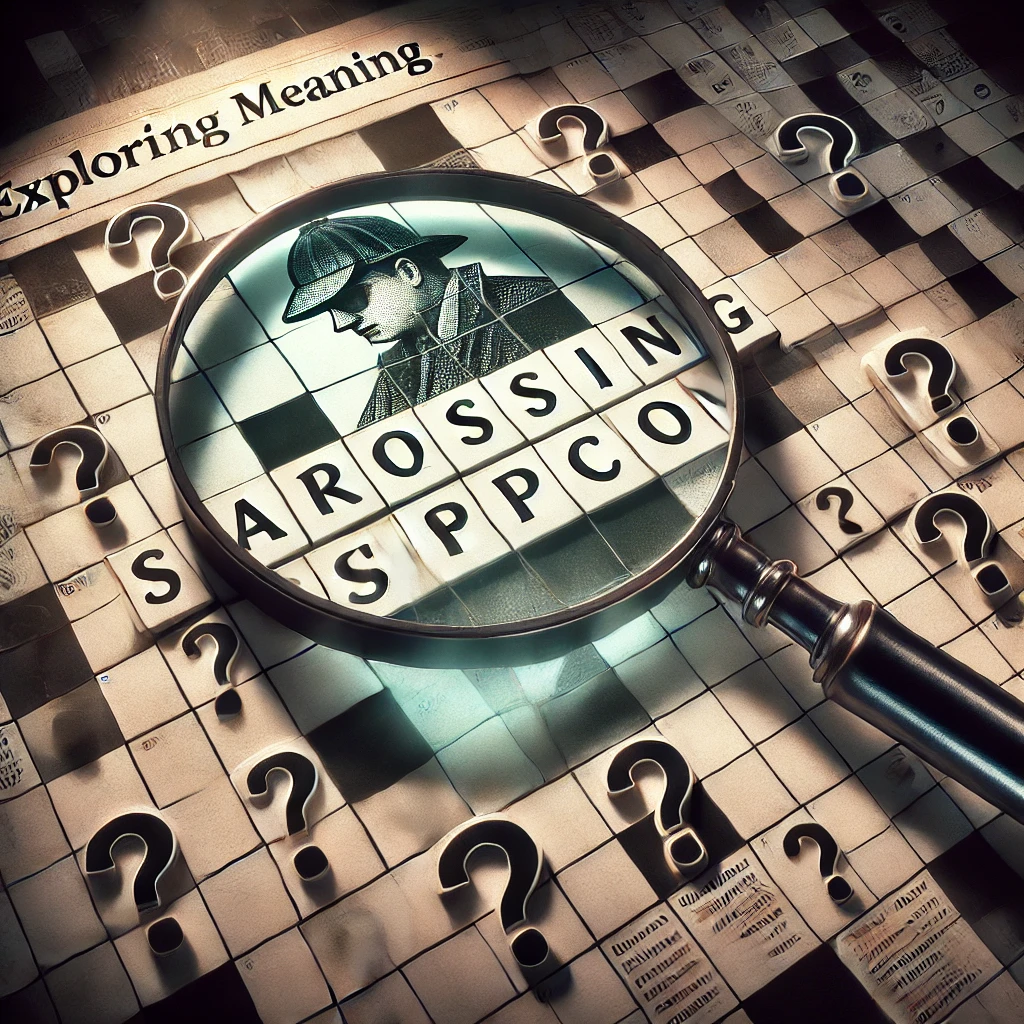Crossword puzzles have long been a favorite pastime for many, providing both entertainment and mental stimulation. One of the more intriguing aspects of solving a crossword is deciphering clues that are often cleverly worded or require lateral thinking. Among these, the clue “Arousing Suspicion” is a common entry in the New York Times crossword puzzles, challenging solvers to think about words or phrases that connote doubt or mistrust.
Understanding the Clue: What Does “Arousing Suspicion” Mean?
To “arouse suspicion” means to create or evoke doubt or distrust about someone or something. The phrase implies that there is something questionable about a situation or a person’s actions that leads others to suspect wrongdoing or deceit. This clue can be interpreted in several ways, depending on the context and the number of letters required for the solution.
Possible Answers and Their Meanings
Several words and phrases fit the crossword clue “Arousing Suspicion,” each with subtle nuances. Here are some common answers:
1. SUSPECT
- Definition: To believe that someone is guilty of something without certain proof.
- Usage: This word is frequently used when there is a general feeling or hunch that something is not quite right.
2. FISHY
- Definition: A situation that is dubious or suspicious.
- Usage: Often used colloquially to describe scenarios that seem strange or unlikely to be true. For example, “His excuse for being late seemed fishy.”
3. SHADY
- Definition: Dishonest or illegal.
- Usage: This term can describe a person or deal that is suspicious or questionable in nature.
4. ODD
- Definition: Strange or unusual.
- Usage: When something doesn’t quite fit the norm or seems peculiar, it can arouse suspicion. For example, “There was something odd about his story.”
5. DODGY
- Definition: Dishonest or unreliable.
- Usage: Commonly used in British English to describe people or activities that are suspect or likely to involve deceit.
6. QUEER
- Definition: Strange, odd, or unconventional.
- Usage: Historically used more broadly to mean something unusual, although contemporary usage can be sensitive due to its association with LGBTQ+ identities.
Crossword Solving Tips: How to Approach “Arousing Suspicion”
When encountering the clue “Arousing Suspicion” in a crossword puzzle, here are some strategies to consider:
1. Check the Number of Letters
- The length of the answer is crucial. Count the number of boxes provided to guide your choice of word. This will help eliminate some possibilities and focus your options.
2. Consider the Context
- Look at intersecting words to gain additional clues. The letters you already have can narrow down potential answers.
3. Think Synonymously
- Brainstorm words that mean suspicious or dubious, even if they aren’t direct synonyms. This lateral thinking can often lead to the correct answer.
4. Keep Cultural References in Mind
- The New York Times crossword often uses idiomatic expressions or culturally specific terms. Consider words or phrases that are commonly used in American English.
5. Use Crossword Tools Wisely
- Crossword dictionaries and online solvers can be invaluable when you’re stuck. They can provide a list of possible answers based on the given letters and clue.
Conclusion
The clue “Arousing Suspicion” is a classic example of how crossword puzzles can challenge our vocabulary and problem-solving skills. By considering the various ways suspicion can be expressed linguistically, solvers can enhance their ability to tackle this clue effectively. As with many crossword challenges, practice and familiarity with word patterns and idiomatic language will improve your solving skills over time.
Whether you’re a seasoned solver or a newcomer to the world of crosswords, tackling clues like “Arousing Suspicion” can be a rewarding mental exercise, offering both the satisfaction of discovery and the joy of learning.











